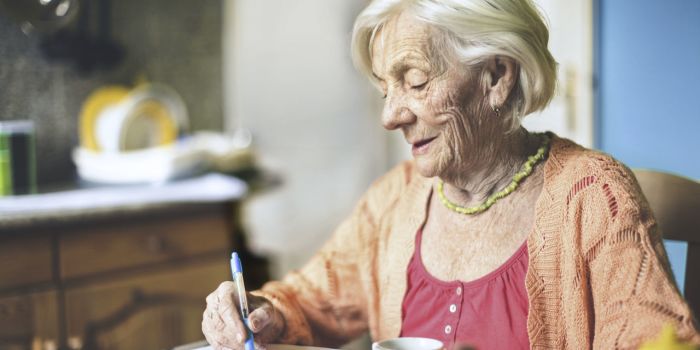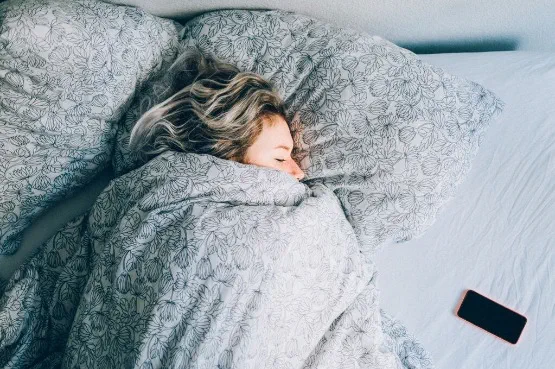Ways to tackle loneliness in older people
Loneliness in older people is a concern that’s widely recognised in the UK today. So, it’s important to make sure that older adults who are experiencing loneliness aren’t neglected.
Here, I discuss how loneliness can impact this age group. I also share some easy ways you can support older people you know, or who might live in your local neighbourhood or community.

What causes loneliness in older people?
Let’s start by exploring what loneliness is. Loneliness is a feeling that can affect anyone of any age. Feelings of loneliness will also be different for everyone. Some people might feel lonely even when around others. While others may feel lonely from a lack of social contact or relationships with other people.
Loneliness can be caused by many different things. Certain groups of people may be more likely to feel lonely, such as older people, whose circumstances can often trigger loneliness. These might include if they:
- retire from employment
- have few social contacts or hobbies
- get older and weaker
- lose friends or loved ones
- move to a new area
- are excluded from social activities because of a disability or mobility problems
- are shielding from others because of health problems
Loneliness can also affect older people who don’t have money for, or access to social activities.
How does loneliness effect older people and the elderly?
Loneliness is closely linked to our mental and physical wellbeing. Research has shown it can have a negative impact on older people’s physical and mental health, especially if they’ve been feeling lonely for a long time. It’s also associated with several health problems.
For example, it has been linked to not exercising, depression and dementia and being less able to fight infection.
How can I support people feeling lonely in later life?
It might be hard for an older person who is lonely to admit to feeling lonely. But there are many easy ways that you can support someone who is feeling lonely or at risk of being lonely. Here are some ideas you could try that might help someone to feel better.
1. Volunteer help
Consider joining a ‘befriending’ service – it could just involve a weekly telephone call. This helps older people who are stuck at home and may not have a network of family or friends. Organisations like Age UK, Re-engage and Independent Age, have a network of local support groups, with opportunities to befriend older people over the phone.
The GOV.UK website also has information on how to volunteer in your local area.
2. Start a conversation
If you next pass an older person or neighbour, why not smile and start a conversation? It could be something as simple as having a chat about the weather. You could offer to help a neighbour with basic tasks.
This might include offering to carry their shopping, take out their rubbish, or walk their dog, if they have one. One conversation can lift someone’s mood for an entire day.Or, if they live on your street and you have some spare time why not invite them in for a coffee and chat?
3. Connect digitally
The internet is a great way for keeping in touch and connecting with others If they’re not confident with using social media, suggest ways that they can reconnect with others using sites such as Facebook or Twitter.
Setting up regular video calls can also be a great way of bringing people together and staying in touch. Or you could connect remotely in other ways and play an online version of a game that you both enjoy, such as scrabble or chess.
4. Internet support
It can be easy to forget that not everyone is confident using the internet. For some older people who haven’t grown up with the internet, they might not be getting the most out of it.
Check if any older family members or friends need any help with using the internet. If they lack basic computer skills, libraries are often a good place for older people to get training.
5. Pet companionship
It’s no secret that pets can be a great source of companionship. But, did you know that they can benefit our health and wellbeing too?
For those who are able to look after an animal, studies show that owning a cat or a dog can help to reduce loneliness. One study compared the effects of living with a real dog and a robotic dog. Both groups showed a decreased level of loneliness.
6. Create opportunities for social contact
If an older person you know is struggling to fill their day with activities, there might be local community groups that you can put them in touch with. This could include book clubs, walking groups, bowling or bingo groups. Or there might be hobby groups online that they can join, to share ideas and interests.
The Silver Line offers free 24-hour conversation, friendship, and support to people aged 55 and over. It also provides callers with information on what’s happening in their local area.
Final thoughts
It’s important to recognise that each person experiences loneliness differently and there are many factors that can contribute. There isn’t a one-size-fits-all approach that will work for everyone. But being mindful of loneliness and offering a little bit of support can go a long way in helping to reduce these feelings.
-
Sources Sources
- Loneliness research and resources. Age UK. ageuk.org.uk, accessed 11 August 2023
- Loneliness. Mind. Mind.org.uk, published June 2023
- Reducing social isolation and loneliness among older people. World Health Organisation. who.int, accessed August 2023
- Faykoya O, McCorry N, Donnelly M. Loneliness and social isolation interventions for older adults: a scoping review of reviews. BMC Public Health 2020, DOI: 10.1186/s12889-020-8251-6
- Needell NJ, Mehta-Naik N. Is Pet Ownership Helpful in Reducing the Risk and Severity of Geriatric Depression? Geriatrics (Basel). 2016 Oct 4;1(4):24. DOI: 10.3390/geriatrics1040024
- Gardiner C, Geldenhuys G, Gott M. Interventions to reduce social isolation and loneliness among older people: an integrative review. Health and Social Care in the Community (2018) 26(2), 147–157, DOI: 10.1111/hsc.12367
About our health information
At Bupa we produce a wealth of free health information for you and your family. This is because we believe that trustworthy information is essential in helping you make better decisions about your health and wellbeing.
Our information has been awarded the PIF TICK for trustworthy health information. It also follows the principles of the The Information Standard.

More mental health and wellbeing articles
Did you find our advice helpful?
We’d love to hear what you think. Our short survey takes just a few minutes to complete and helps us to keep improving our healthy lifestyle articles.
Legal disclaimer
This information was published by Bupa's Health Content Team and is based on reputable sources of medical evidence. It has been reviewed by appropriate medical or clinical professionals and deemed accurate on the date of review. Photos are only for illustrative purposes and do not reflect every presentation of a condition.
Any information about a treatment or procedure is generic, and does not necessarily describe that treatment or procedure as delivered by Bupa or its associated providers.
The information contained on this page and in any third party websites referred to on this page is not intended nor implied to be a substitute for professional medical advice nor is it intended to be for medical diagnosis or treatment. Third party websites are not owned or controlled by Bupa and any individual may be able to access and post messages on them. Bupa is not responsible for the content or availability of these third party websites. We do not accept advertising on this page.







